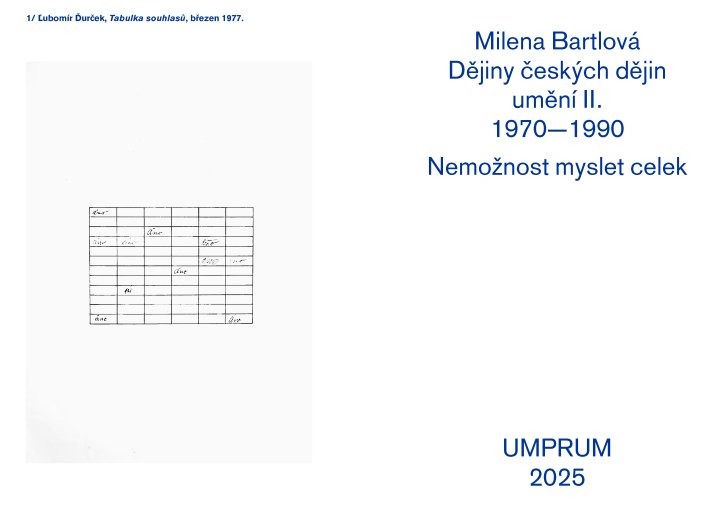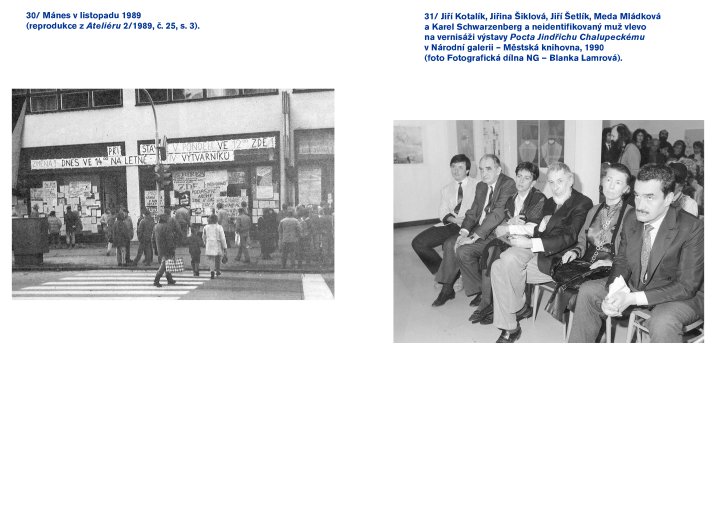History of Czech Art History in the second half of the 20th Century
Status: completed
Project duration: 2021 - 2024
Funded by: Czech science foundation
Main researcher: prof. PhDr. Milena Bartlová, CSc.
Project summary:
This was two-part research project, each project resulted in complete monography of History of Czech art history I. (1945 – 1969) and History of Czech art history II. (1970 – 1990)
What were the results of this project?
History od Czech art history I. (1945 - 1969) presents, based on extensive archival study and discursive analysis of texts, the history of the academic field of art history and theory in the present-day Czech Republic from the end of World War II to the beginning of normalization. The specifics of the field straddling science and art determine specific chronological milestones and a research method that takes into account both the discursive level and practice. Art history is followed in three ways: as biographies of significant figures, as institutional histories of university and museum departments, and as histories of ideas or discourses. Attention is paid to specific topics such as the gender system of the field, relations to foreign countries and German exiles, relations to contemporary art, etc. The book provides a visual image of a humanities discipline in a dynamic historical period encompassing the Third Republic and the coming to terms with the war years, the rise of the Communist Party of the Czech Republic dictatorship and the years of Stalinism, the post-Stalin period and the Prague Spring. At the same time, it is a more general contribution to the cultural history of this era.
History od Czech art history II. (1970 - 1990): Based on extensive archival research, reading of contemporary art historical publications, interviews with historians, and last but not least, her own memories and experiences, the author portrays a period when Czech art historians achieved the long-awaited goals of their field, but had to deal with restrictions on the freedom of scientific research and university studies, and the impossibility of free travel. The book presents for the first time a close look at the navigation of individuals and the entire professional community in a situation of tension between everyday life, submission, and defiance in the intellectual society of the 1970s and 1980s. The author understands this period as “our domestic postmodernism,” which led to a splitting of reality, which, however, does not proceed according to the conventional distinction between good and evil.

